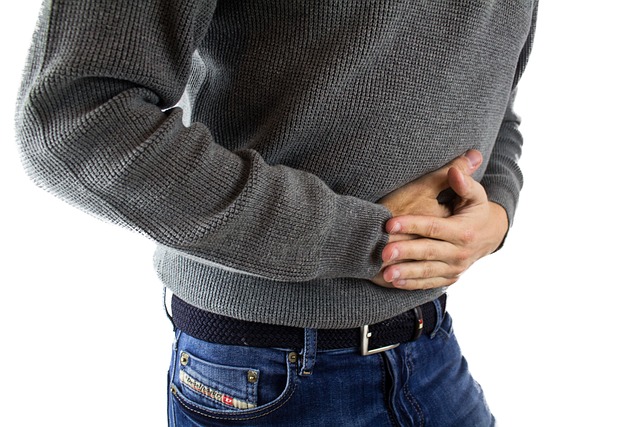The Impact of Alcohol on the Stomach
Alcohol and stomach pain is a common occurance. It irritates the stomach lining, leading to inflammation called gastritis. This can cause pain, nausea, and vomiting. Alcohol also increases stomach acid production, which may worsen acid reflux symptoms.
The digestive system’s ability to break down food is impaired by alcohol. It can slow the emptying of the stomach, leading to bloating and discomfort. Long-term heavy drinking may cause more serious diseases related to alcohol abuse, such as stomach ulcers or bleeding.
Common symptoms of alcohol-related stomach problems include:
- Abdominal pain
- Nausea
- Vomiting
- Indigestion
- Bloating
To protect the stomach, it’s wise to drink in moderation and avoid alcohol on an empty stomach.
Health Issues Stemming from Alcohol Misuse
Excessive alcohol consumption can lead to a range of stomach-related health risks. These conditions can significantly impact one’s quality of life and require medical attention.
Stomach Lining Inflammation Alcoholic gastritis occurs when alcohol irritates the stomach lining. Symptoms may include:
- Abdominal pain
- Nausea
- Vomiting
- Loss of appetite

Ulcers Heavy drinking can weaken the stomach’s protective lining, leading to painful sores known as ulcers. These can cause:
- Burning pain in the abdomen
- Feeling full quickly
- Bloating
- Heartburn
Acid Reflux Alcohol relaxes the muscle that prevents stomach acid from entering the oesophagus. This can result in:
- Chest pain
- Difficulty swallowing
- Regurgitation of food or sour liquid
Enlarged Veins – Long-term alcohol misuse may cause varices, which are swollen veins in the stomach or oesophagus. These can be dangerous if they rupture and bleed.
Increased Cancer Risk – Heavy alcohol consumption is linked to a higher risk of stomach cancer. While alcohol is not the sole cause, it is a significant risk factor.
Nutrient Absorption Issues – Alcohol can interfere with the body’s ability to absorb essential nutrients, leading to deficiencies and related health problems.
Pancreas and Liver Concerns – Excessive drinking may cause inflammation of the pancreas (pancreatitis) and various liver diseases, affecting overall digestive health.
It’s important to note that these conditions can develop gradually and may not show immediate symptoms. Regular health check-ups and moderation in alcohol consumption are crucial for maintaining good stomach health.
For those struggling with alcohol use disorder, seeking professional help is essential. Treatment options may include:
- Counselling
- Support groups
- Medication-assisted therapy
- Lifestyle changes
By addressing alcohol misuse early, individuals can reduce their risk of developing these serious stomach conditions and improve their overall well-being.
Quick Alcohol Effects on the Tummy
Drinking alcohol can cause several immediate issues for the stomach. The tummy may produce more acid, leading to irritation and swelling of its lining. This can trigger unpleasant symptoms like sickness, throwing up, and stomach aches.
Alcohol might also slow down how quickly food moves through the stomach. This can make one feel overly full and bloated. People may experience:
- Nausea
- Stomach cramps
- Heartburn
- Diarrhoea
For those with existing tummy troubles, alcohol can make things worse. It may intensify problems like acid reflux or stomach ulcers.

Some folks might notice these signs after drinking:
- Upset stomach
- Abdominal pain
- Sweating
- General tummy discomfort
It’s worth noting that these effects can vary from person to person. Some might feel gastritis symptoms like tummy pain and feeling sick quite quickly after drinking. Others may not notice any immediate issues, but that doesn’t mean alcohol isn’t affecting their stomach.
Long-Term Impacts of Alcohol on the Stomach
Excessive alcohol intake over time can lead to significant weight gain. Alcoholic beverages are often calorie-dense, contributing to increased body mass. This extra weight may worsen existing stomach issues or raise the risk of developing new ones.
Prolonged alcohol abuse can weaken one’s immune defences, leaving the stomach more vulnerable to infections. This heightened susceptibility may result in frequent bouts of stomach illness or complications from normally harmless bacteria.
Safeguarding Your Stomach from Alcohol-Related Harm
Limiting alcohol intake is crucial for stomach health. Besides this, one can take additional steps to protect the digestive system. Drinking isotonic fluids helps maintain proper hydration and restore electrolyte balance. It’s wise to steer clear of stomach irritants like spicy or acidic foods. A balanced diet and proper nutrition support overall gut health. Consider these tips:
• Stay hydrated • Eat before drinking • Choose gentler foods • Take breaks between drinks
Getting Support for Alcohol Dependency
People struggling with alcohol addiction can benefit from professional assistance. Seeking guidance from healthcare experts, therapists, or counsellors is crucial. These professionals can offer personalised treatment plans and valuable advice. Options may include:
- Cognitive behavioural therapy
- Support groups
- Alcohol detox programmes
- Medication for withdrawal symptoms
It’s essential to address both physical and emotional aspects of alcohol dependency. Proper care can help manage anxiety and other challenges during recovery.
Common Queries About Alcohol and Stomach Issues
How can one alleviate stomach discomfort after drinking?
To ease stomach pain after alcohol consumption, try these remedies:
- Drink plenty of water to stay hydrated
- Eat light, easily digestible foods
- Take an over-the-counter antacid
- Apply a warm compress to the abdomen
- Get plenty of rest
Is stomach pain a typical result of alcohol intake?
Yes, lower abdominal discomfort is a common aftereffect of drinking alcohol. This can occur due to:
- Increased stomach acid production
- Irritation of the stomach lining
- Delayed stomach emptying
- Inflammation of the digestive tract
What are the long-term effects of alcohol on the stomach?
Prolonged alcohol use can lead to several stomach issues:
- Chronic gastritis
- Increased risk of stomach ulcers
- Impaired nutrient absorption
- Heightened risk of stomach cancer
- Damage to the stomach lining
How can one determine if alcohol has harmed the stomach?
Signs that alcohol may have damaged the stomach include:
- Persistent abdominal pain
- Frequent indigestion or heartburn
- Blood in vomit or stools
- Unexplained weight loss
- Difficulty swallowing
If these symptoms persist, consult a healthcare professional.
Which alcoholic beverages are gentler on the stomach?
Some alcoholic drinks may be less likely to irritate the stomach:
- Clear spirits like vodka or gin
- Light beers
- Dry wines
Remember, moderation is key regardless of the type of alcohol consumed.
Why might the right side of the abdomen hurt after drinking?
Right-sided abdominal pain after alcohol consumption could indicate:
- Liver inflammation
- Gallbladder issues
- Irritation of the small intestine
- Referred pain from other organs
If this pain is severe or persistent, seek medical advice to rule out serious conditions.



